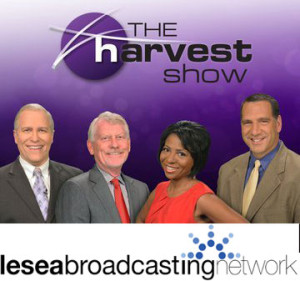When’s the last time you were wronged?
Not something small. Not, “the other people in the theater totally RUINED my movie viewing experience” or “all the otherdrivers made me late for work.” I mean, when’s the last time you were genuinely wronged? Something personal. Something that wounded you. Something you were forced to remember, against your will, for the rest of your life.
Visit the moment you discovered that wrong… How’d you feel? About yourself, the victim? About the other person, the perpetrator? How did the word, forgive, resonate with you in your wounded state?
Without knowing you or your story, I’d wager (if you’re anything like me) that perhaps forgiveness didn’t feel at all possible, much less desirable. Maybe it even seemed totallyunnatural given your situation.
I don’t blame you if that’s true. In fact, the inner resistance you and I often feel as victims toward our perpetrators and toward the idea of forgiving them is rather natural for us.
But that’s the struggle: our “what’s-natural-for-me” mechanism. It’s the ingrained rule of life that’s always there, always pushing our hearts to do what feels most immediately satisfying for us. It generally looks for the path of least resistance. And while it may feel gratifying to listen to its influence, that mechanism often blocks us from Kingdom living. It stands in the way of our practicing this heart-wrenching-yet-God-glorifying spiritual discipline, forgiveness. And don’t we all have the hardest time switching that mechanism off?
I don’t think we set out to do this intentionally, but when we operate under the influence of that old mechanism, we can’t help but try to make forgiveness something that’s reasonable. Something we can handle. Something we can rationalize. Something we can, at the end of the day, feel okay about. It’s the “what’s-natural-for-me” mechanism at work.
It’s also the part of Peter that spoke up one evening in Galilee: “So, Jesus, be reasonable. Isn’t forgiving my brother SEVEN TIMES enough? Isn’t it honestly more than enough?”

We all know how that conversation went: Jesus responds to Peter’s ethics question with his usual transcendent flare and remarks that Peter should forgive his brother an unending amount of times. Several scenes later, Jesus then goes and spends some of his dying breath asking his Father to not hold his perpetrators’ wrongs against them. Unreasonable, no?
Returning to the conversation, let’s not look down on Peter. Hewas only doing what the rest of us do: trying to make the things of God look and work like the things of us. Struggling to reconcile two different kingdoms. Peering with earthly eyes into heavenly realities and having a hard time making sense of it all.Being both a man of this world and a man of the next world…It’s the boat all of us are in.
It’s also why the New Testament begs us to think like citizens of the next world, not this one.
“Set your mind on the things above, not on the things of the earth,” says Paul. “For you died, and your life is now hidden with Christ in God…Put to death, therefore, whatever belongs to your earthly nature…” (Col. 3)
It’s our dying to this world that makes forgiving others a treasured act, though it often seems unreasonable. Forgiving our perpetrators is a gritty business. Though it leads to eventual life, it feels like death in the immediate because, in a way, forgiveness comes from death. It’s a fruit of our dying to what’s natural for us. When Christ asks us to forgive, he asks to us die to the old mechanism of “what’s natural, what’s reasonable for me” and live to His new mechanism of “what’s true of hisKingdom.”
This is why forgiveness is so hard and also so sacred. It’s bigger than just the situation in front of you. It’s the Kingdom principle of death-to-self clashing against our sometimes very justified, very natural self-preservation reflexes. We want our justice. We want our wrongs righted. And that’s only natural.
But the bitter pill we swallow in becoming disciples of Jesus—the master forgiver and the master of mercy—is that we agree to exchange our natural for his natural, our reasonable for his reasonable, our limits of mercy for his limitless mercy. And the way this happens is through a lifetime of trying and failing and trying again. A lifetime of discipline. A lifetime of learning from the ultimate teacher. A lifetime of allowing the Good Doctor to do intensive surgery on your heart and mind. There’s no shortcut for this—only the long, narrow road.
So, today, if you’re struggling to forgive someone, here are a few encouragements you might use to get started:
Show grace to yourself. Dying to our old mechanisms andlearning to live to the new Kingdom mechanisms of heart and mind is very hard. Being bitter and harsh toward ourselves in the process helps nothing and can damage our perception of the benevolent, merciful Father.
Be okay with the reality that forgiveness may take a long time. Sure, there are examples of people who were able to overcome bitterness and fully forgive their perpetrator in one glorious moment. But for every one of those examples, I’m convinced there’s also a matching host of other examples where committed followers of Jesus had to choose forgiveness daily for weeks, months, even years. Again, forgiving others is a spiritual discipline. Meaning, you don’t pick it up one day and automatically master it. It takes devoted effort. And God doesn’talways exempt us from processes that involve hard work and pain.
Choose to believe that forgiveness is worth it. Despite that pain, it’s worth it for you. It’s worth it for “them,” whoever “them” is in your story. Remember that the gospel itself is a story of unreasonable forgiveness. God himself practiced this and, beyond any doubt, will faithfully and thoroughly work his goodness into your story as you begin to practice forgiveness also.
Share your struggle with a few others you trust. Our enemyWANTS you to struggle in isolation—don’t give him what he wants. Real, authentic community offering real, authentic support for you is a necessity, not an option. Be vulnerable with those worthy of your vulnerability. Face what happened, don’t avoid it; but face it in the safety and power of Spirit-filled, Christ-fixated community.
Start forgiving now. If you can’t do it all in one day, do as much as you can this day. Start at the beginning. Take your first step. Don’t judge yourself if your emotions don’t fully line up with your values—they often won’t. Then, the next day do the same thing. Trust that as you plant your feet in the path of forgiving others, Christ commits to walking with you.
Start rejoicing now. This one, though simple, can sometimes be as hard as forgiveness itself. Like forgiveness, real joy takes devotion and discipline because it doesn’t always ride within our emotions. In fact, rejoicing despite pain and hardship is one of the realest ways our faith expresses itself because real joy comes more from faith than it does circumstance. So, don’t wait until you feel like you’re ready. Joy is meant to be a chosencompanion for every path, no matter where we find ourselves. Rejoice in God today. And then do it again the next day, and every day after. And see if that doesn’t somehow, some miraculous way, also aid you in the battle for forgiveness.
The Father bless you and keep you as you choose a life of disciplined forgiveness in Christ, through His Spirit.









